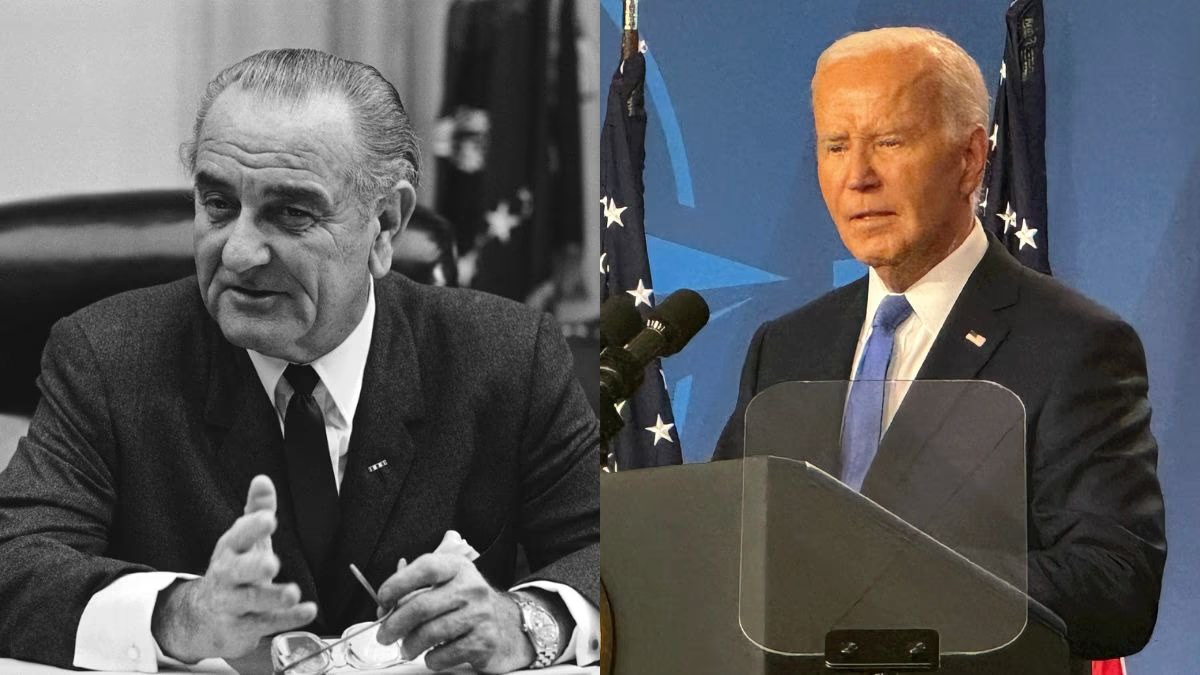On Sunday night, in a statement that stunned the United States and the world, President Joe Biden announced his withdrawal from the presidential race. Following Biden's announcement, Vice President Kamala Harris has gained momentum as the potential Democratic candidate, with Biden also extending his support to her candidacy.
This Isn't a First
Looking back at American presidential election history, it becomes evident that Biden is not the first sitting president to withdraw from a re-election campaign. In 1968, President Lyndon Johnson made a similar decision.
President Lyndon Johnson's Decision
In the midst of the 1968 presidential election, President Lyndon Johnson shocked the nation by deciding to pull out of the race. He made this announcement during the Vietnam War. By 1968, Johnson felt he was losing his grip on the party, which had fractured into four opposing factions.
The Vietnam War's differing perspectives were just one of the issues dividing the party, and Johnson saw no clear path to winning the war. Additionally, he struggled to unify the party and was concerned about his deteriorating health. Johnson even doubted his ability to survive another term.
On March 28, grappling with health issues and waning political influence, President Lyndon Johnson began contemplating his withdrawal from the presidential race, discussing it with Joseph A. Califano Jr. and Harry McPherson. Three days later, Johnson announced his decision to withdraw from the race.
Richard Nixon Emerges as President
Vice President Hubert Humphrey was nominated as the candidate, but he was defeated by Republican candidate Richard Nixon. On November 5, 1968, Richard Nixon won the presidential election.




